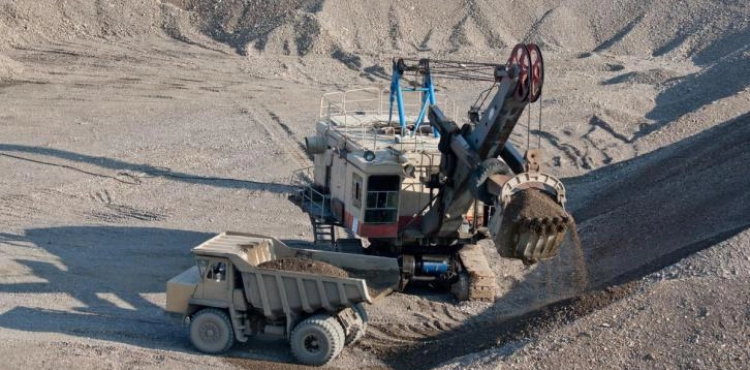After Iran´s oil sales were targeted, the United States tightened its restrictions on Tehran´s economy by imposing sanctions on its mineral industries, but sources in the sector say it is difficult to restrict foreign revenues it generates.
The move comes amid rising tensions a year after the United States withdrew from a nuclear deal signed by Tehran with major powers in 2015.
A US naval force is heading to the Gulf region, while Iran has filed to stop implementing some parts of the deal.
US President Donald Trump announced last week sanctions on anyone who makes trade deals with the Islamic Republic linked to iron, steel, aluminum and copper.
This came after Washington in November imposed sanctions on Iranian oil exports, a major source of funding for the Islamic Republic.
But targeting the steel and mining sector - Iran´s second largest source of foreign revenue - may be harder.
Unlike oil, Iran´s mineral trade is reliably decentralized, mostly between small, medium and neighboring foreign companies, which limits their vulnerability to sanctions, experts say.
"It is not a problem for some countries and non-US companies to deal with Iran," said Mujtaba Faridouni, an analyst specializing in the field.
He pointed out that "the main export markets for us are our neighbors - Iraq and Afghanistan, and recently Syria and (Sultanate) of Oman."
He said the metal companies were relatively unaffected by the first series of sanctions, which were re-imposed last year.
"In August, steel makers were invented from importing the necessary raw materials for any trade in steel products ... but exports rose during the year.
Official data show that Iran´s mineral exports increased by about 20 percent from one year to a year, reaching $ 6.2 billion in the 12 months to March, while steel accounted for more than two-thirds of that figure.
Iran´s revenues were expected to reach $ 30 billion of crude oil exports during the current fiscal year (March 2018 - March 2019), according to the budget bill passed by the Islamic Consultative Assembly (parliament) in early March. That figure was slightly lower than last year.
Industry official Amir Sabbagh said mineral companies would face additional costs but would be "manageable" at a time when exports are becoming more profitable as the local currency depreciates.
The Iranian riyal lost more than 57 percent of its value against the dollar on the black market last year.
"The main impact of the sanctions may be the rising cost of shipping and the declining ability of exporters to bargain," written Sabbagh, an official at a state-owned metallurgical company, on Telegram.
The sector may also be affected by the sanctions imposed by Washington in November to isolate Iran from the global financial system.
The expert on Iran´s sanctions profile at Eurasia Consulting Group Henry Rom warned that this could adversely affect importers who buy most of their raw materials from countries outside the region, such as China, South Korea, Kazakhstan and Russia.
"The (US) financial sanctions will stifle at least some of these relations," he said.
In turn, Iran´s economist Ihsan Soltani pointed out that foreign exchange earnings from mining exports, particularly steel, rarely reach Iran´s financial system, which could ease the impact of sanctions on mining exports.
Instead, proceeds are left out of the country to be used to pay for imported materials.
An adviser to Economy Minister Hussein Mir Shujaian told the semi-official ISNA news agency that one-third of Iran´s 40 billion dollars of non-oil exports returned to the country last year.
Soltani told AFP that steel manufacturers say they keep the money out of the country so they can use it to import raw materials and point out that they can not return it to Iran in any case because of the banking sanctions imposed.
After these factors, Rum warns that any possible closure of factories associated with this sector will increase pressure on the government.
The mining sector provides 200,000 jobs directly and thousands of other jobs indirectly, Sultani said.
But Mr Faridouni believes that keeping large shares in most major companies can protect the industry, while smaller companies involved in the final stages of the industrial cycle can escape the US radar.
"The big companies [...] are still quasi-governmental and therefore can not dismiss staff under any circumstances," he said.
Ultimately, the sanctions were "not new" to Iran´s mining industry.
"We have always faced sanctions, sometimes tougher and sometimes less severe," he said.












